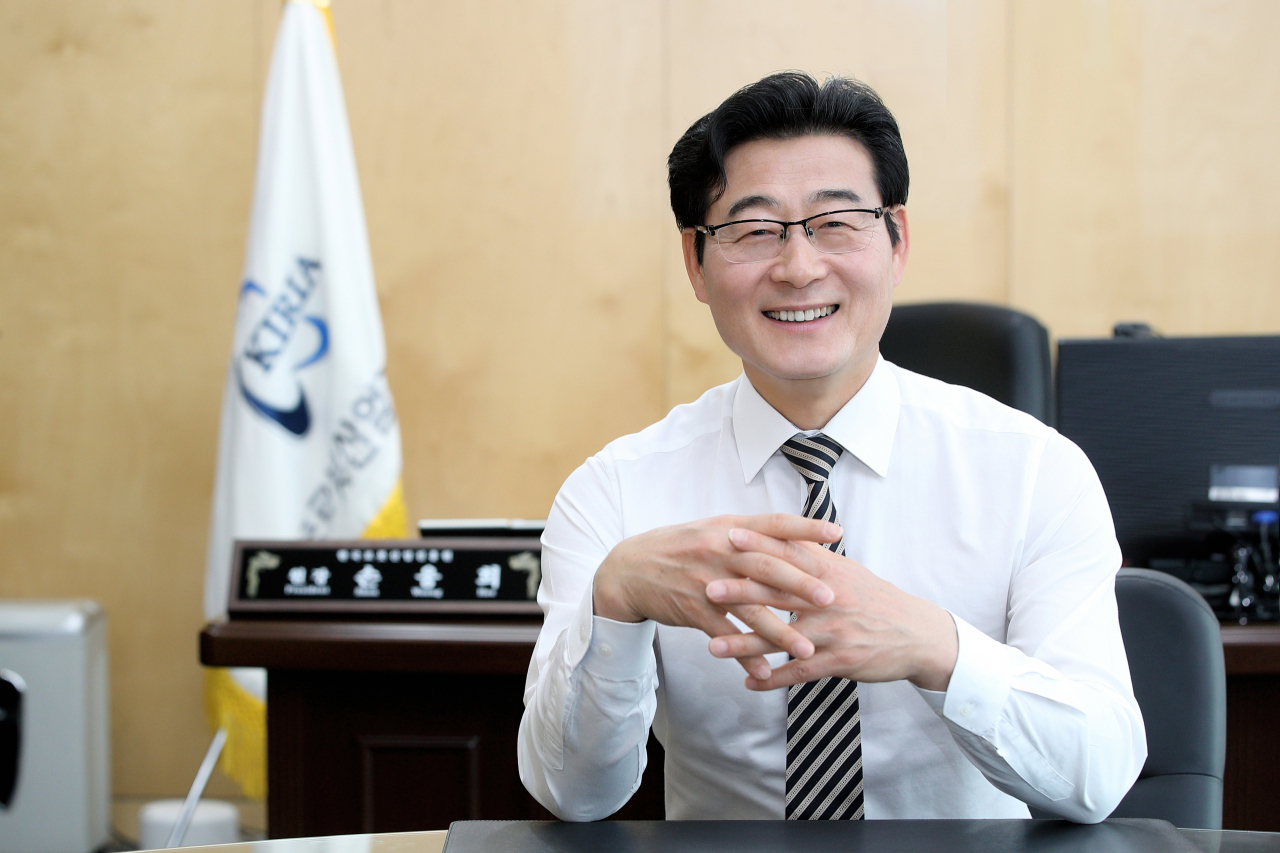'Like the iPhone did, robots will open a new market'
Robots' penetration into the market depends on services that cater to 'human desires,' says KIRIA chief
By Kim Da-solPublished : Nov. 6, 2022 - 14:27

The first iPhone, introduced in 2007, wowed markets around the world because it had everything that people wanted. The very first smartphone combined everyday features in one single palm-sized device, opening a new era for humanity to pursue technology-driven lives.
The next revolutionary technology will be led by robots, according to the Korea Institute for Robot Industry Advancement (KIRIA) President Shon Woong-hee, if they provide breakthrough services that cater to "human desires" just like the first iPhone did 15 years ago.
“The perception toward robots has evolved from something interesting to something necessary for business, as they substitute repetitive and physically demanding tasks for workers. Such a perception should develop in the future to make robots something people want, for the growth of the industry,” Shon said in an interview with The Korea Herald.
Robots have so far played supporting roles for humans in manufacturing chips and auto parts, South Korea’s two main export items. Companies depend heavily on robots for cost competitiveness, quality advancement, performance management and meeting delivery deadlines, according to Shon.
Besides industrial robots and collaborative robots at factories, more robots are being used in the service industry. They are being used for food and beverage services, logistics and agricultural purposes, among others. They are also being actively developed among businesses in other sectors such as semiconductors, artificial intelligence, drones, software and autonomous driving vehicles. Applying robots to a variety of fields to perform more complex tasks will open up a new market for the robot industry, he said.
“The robot sector itself does not take up a big part of the country’s industry, but the amount of synergy it creates with other sectors is huge,” Shon said.
Shon is a robotics expert with over 30 years of experience as an engineer. He became the new president of the KIRIA last year. The KIRIA is a state-run institute established in 2010. Working with the Ministry of Trade, Industry and Energy, the institute has led various promotional events and activities for the growth of the South Korean robot industry, and has taken part in nurturing related talent.
As the world’s first, South Korea established a law in 2010 to promote the development of intelligent robots. Every five years since then, the government has released action plans to use robots in people’s everyday lives. Such plans removed restrictive hurdles and allowed companies to run pilot projects such as Hyundai Motor Group’s level 4 autonomous driving shuttle bus and Baemin’s door-to-door food delivery robot in certain districts.
The KIRIA can provide a regulatory sandbox environment with flexibility around certain regulations for temporary periods to promote the robot industry, Shon said.
The application of robots will also alleviate work shortages in certain industries such as agriculture, transforming the field's “3D” (dirty, dangerous and difficult) tasks to “ACE” (automatic, clean and easy) ones, he added.
To popularize this perception, KIRIA will take part in the country’s first Electric and Autonomous Agriculture Expo set to be held on Jeju Island from Tuesday to Thursday, to offer insights on the latest agricultural machine trends and technology.
The expo is a spinoff of the annual International Electric Vehicle Expo taking place on the island every year since 2013. The Korea Herald is the media partner for this event.












![[Today’s K-pop] BTS pop-up event to come to Seoul](http://res.heraldm.com/phpwas/restmb_idxmake.php?idx=644&simg=/content/image/2024/04/17/20240417050734_0.jpg&u=)





![[KH Explains] Hyundai's full hybrid edge to pay off amid slow transition to pure EVs](http://res.heraldm.com/phpwas/restmb_idxmake.php?idx=652&simg=/content/image/2024/04/18/20240418050645_0.jpg&u=20240419100350)

![[Today’s K-pop] Zico drops snippet of collaboration with Jennie](http://res.heraldm.com/phpwas/restmb_idxmake.php?idx=642&simg=/content/image/2024/04/18/20240418050702_0.jpg&u=)